Words: Pat Gilbert/Mat Snow/Chris Catchpole
When music went all heavy and serious at the start of the ’70s, one band elected to have themselves real good time instead. A bunch of randy, bickering, boozy Londoners fronted by the gravel-voiced Rod Stewart, The Faces lived to party and crafted a ragged blend of blues, folk, rock and soul to help their audiences do the same. Yet when the hangover kicked in, they would share tender moments of hurt and self-reflection too.
When the Faces formed in summer 1969, their best days already looked behind them. Stewart and Ronnie Wood were alumni of the Jeff Beck Group, while Ronnie Lane, Ian McLagan and Kenney Jones had tasted fame in The Small Faces. Initially, they met with indifference in Britain, so instead decided to concentrate on touring the US, reaping the rewards in early 1971 when second album Long Player climbed into the Billboard Top 30.
But then came the vexing complication of Stewart becoming a huge star in his own right. On his uppers, in 1969 the singer had signed a solo deal with Mercury in New York, but his raw vocal cords and knavish charm failed to sell him any records until October 1971, when the timeless folk-pop of Maggie May became a Number 1 US and UK smash. The Faces undoubtedly benefited from Stewart’s sudden success – their next album, A Nod Is As Good As A Wink… To A Blind Horse, became their biggest seller – but the damage to the group’s cohesion was irreparable.
The Faces’ fourth album, Ooh La La, was publicly panned by Stewart – mostly because he wasn’t present at its initial sessions – and led to bassist Lane departing in summer 1973. His place was taken by Tetsu Yamauchi, a Japanese who didn’t speak English and enjoyed a drink even more than his bandmates did, but within three singles The Faces were over, with Wood joining The Rolling Stones and Stewart achieving solo mega-star status. But the band and its offshoots’ ballsy roots rock’n’roll will thrill forever.
As Rod Stewart gets ready to perform at this year's Glastonbury Festival, MOJO pays tribute to Rod, Ronnie, Plonk, Mac and Kenney with a rundown of the 20 best albums from the group and their various solo projects. Bottoms up!
20.
Rod Stewart
Footloose & Fancy Free
Riva/Warner Bros, 1977
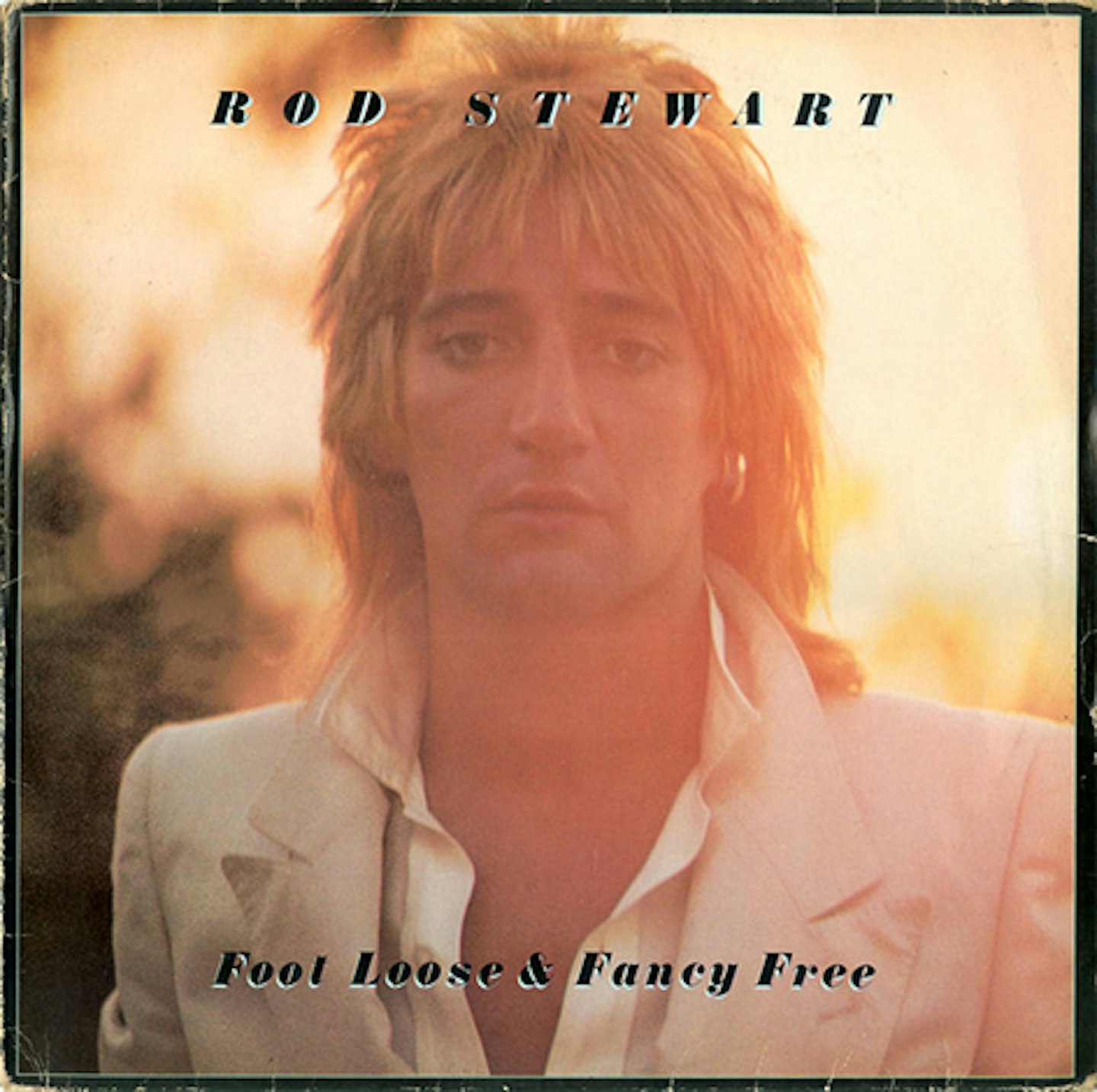
The picture of Rod Stewart on the cover of his penultimate album of the 1970s neatly sums up the dilemma within Footloose And Fancy Free. Here’s Rod, peroxide mullet and eyeliner on following the enormous success of Atlantic Crossing and A Night On The Town, but he looks uneasy, unsure about what he’s supposed to be doing. So, while we get arguably his last great ballad You’re In My Heart (The Final Acclaim) – who else would compare the object of their affection to Celtic FC? - we also get sexist rock dross like Hot Legs. Now enjoying the fruits of his new success and the attendant lifestyle, his attention was audibly elsewhere.
19.
Ian McLagan & The Bump Band
Best Of British
Gadfly, 2000
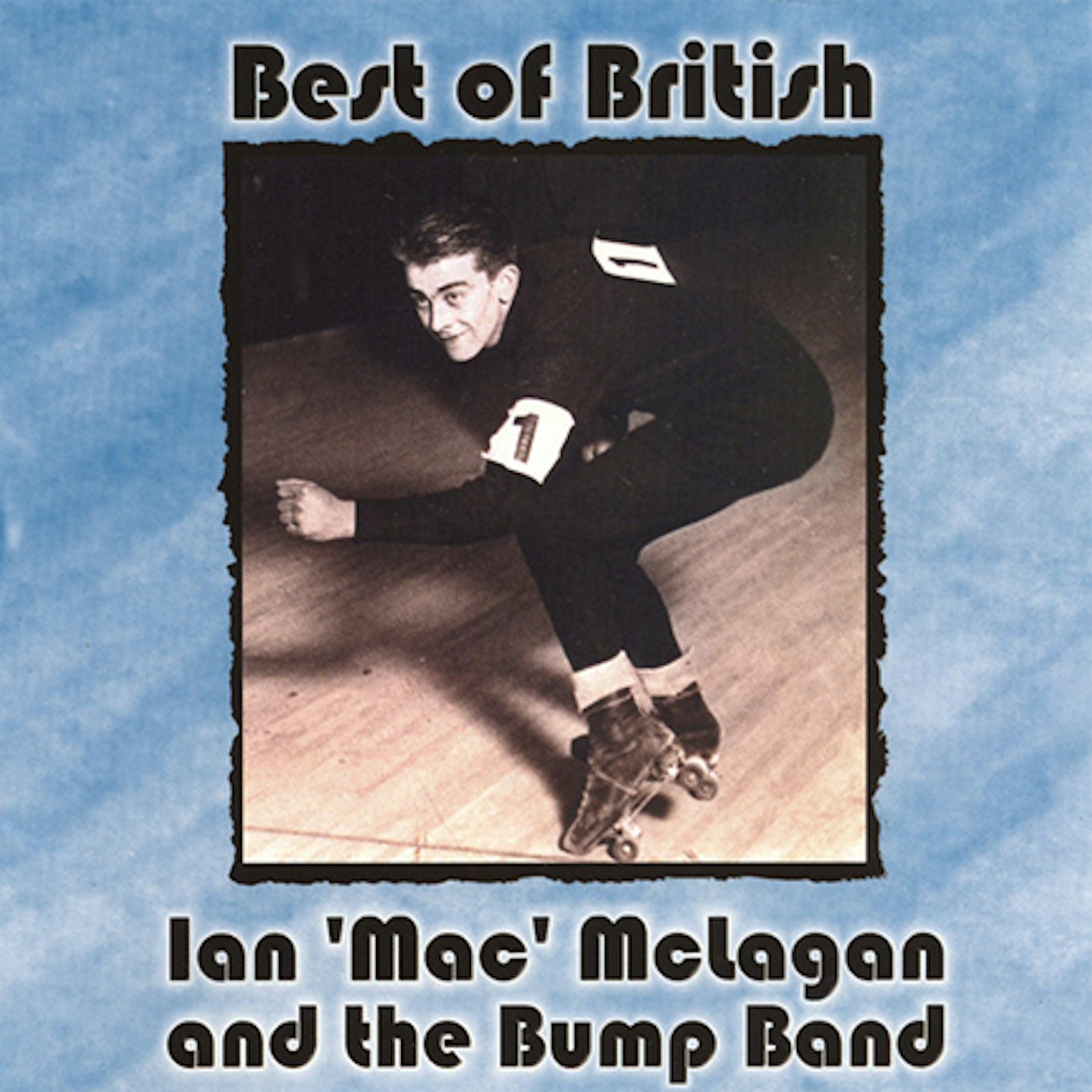
Faces keyboardist Ian McLagan’s first solo album, 1979’s Troublemaker, was a largely forgettable set smothered by the production sheen of the approaching decade. Coming a full 21 years later, his third, however, is something of a gem. Post Britpop, Mac plugs back into the rootsy rock and roll of his days in the Faces with a cockle-warming glow. The unabashed nostalgia of the title track finds him casting his mind back to sharing a pint in a London boozer with old friends, the recently deceased Ronnie Lane no doubt among them.
18.
Ronnie Wood
Now Look
Warner Bros, 1975
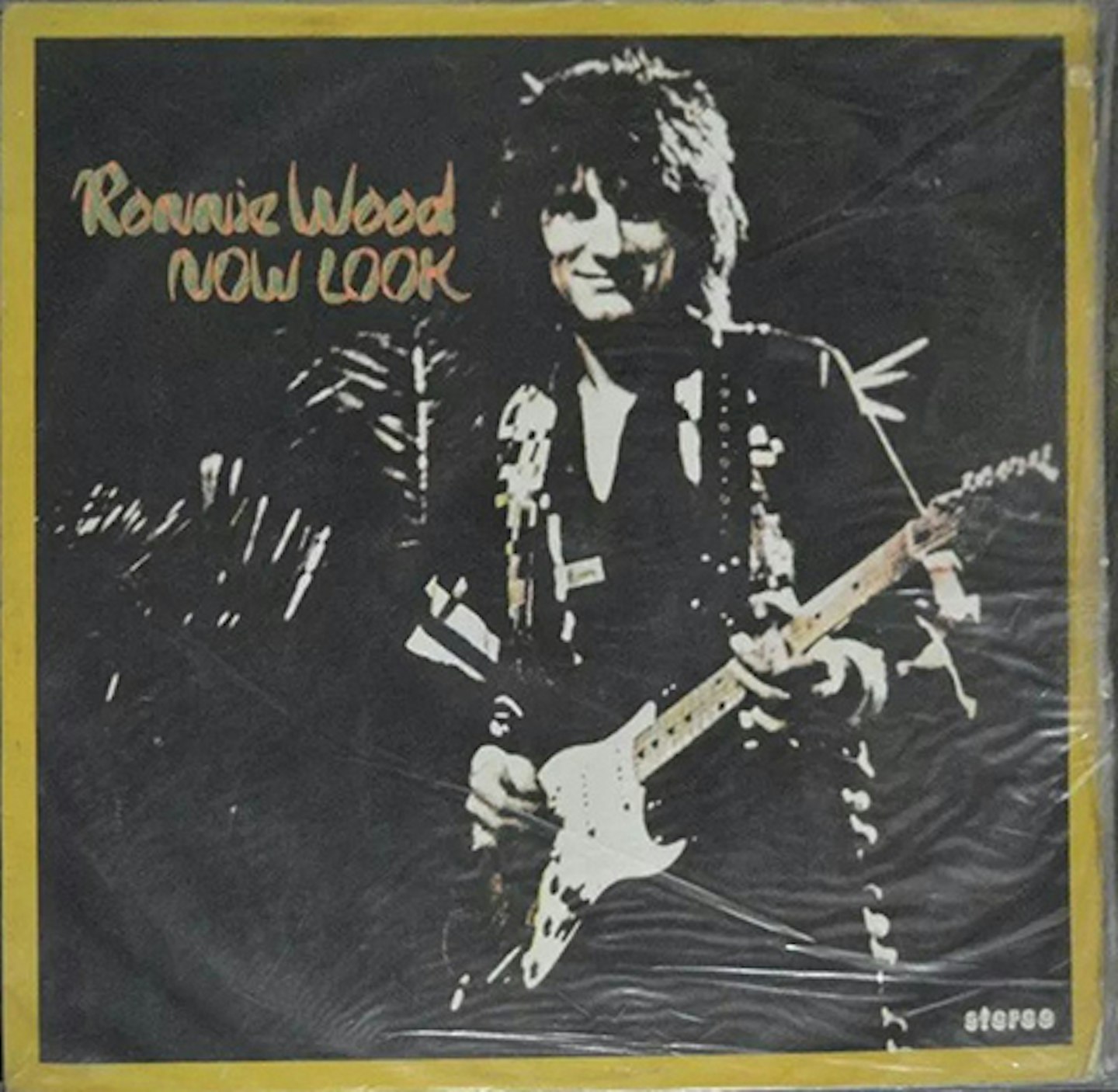
Following 1974 solo debut I’ve Got My Own Album To Do, Ronnie Wood roped in brother in arms/drinking buddy Bobby Womack for the follow up. Now Look smartens itself up, replacing the looser, Faces-like charm for soulful 70s rock. Though limited, Wood’s Dylan-esque croak lands wonderfully on tracks like Breathe On Me’s Stonesy country rock. Unfortunately, by 1981’s unfocused 1234, the guitarist’s songwriting muse was making a beeline for the door.
17.
Rod Stewart
Blondes Have More Fun
Riva/Warner Bros, 1978
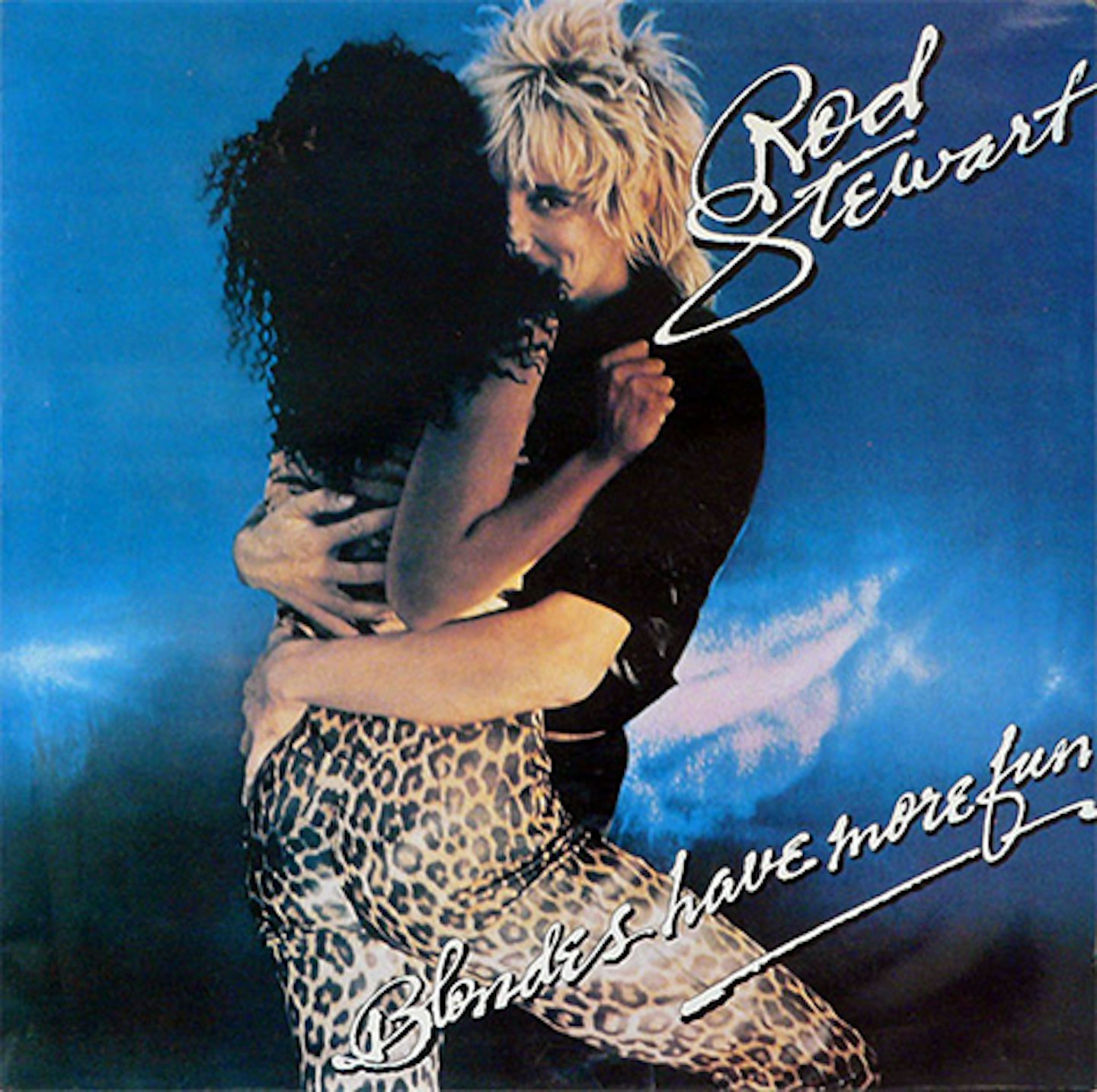
For many UK listeners Do Ya Think I’m Sexy? will forever be associated with the image of Kenny Everett and his ever-expanding-arse and it was the final nail in the coffin for what was left of his Faces fanbase. However, from four decades' perspective, Rod own “pink toilet seat” has aged rather well - a successful rock/disco crossover rivalled only by the Stone’s Miss You. Elsewhere, Ain’t Love A Bitch and The Best Days Of My Life deliver the wistful, soulful ballads of old, while Attractive Female Wanted showed he was still capable of a self-deprecating humour beyond any of his jet-setting peers.
16.
Rod Stewart
Smiler
Mercury, 1974
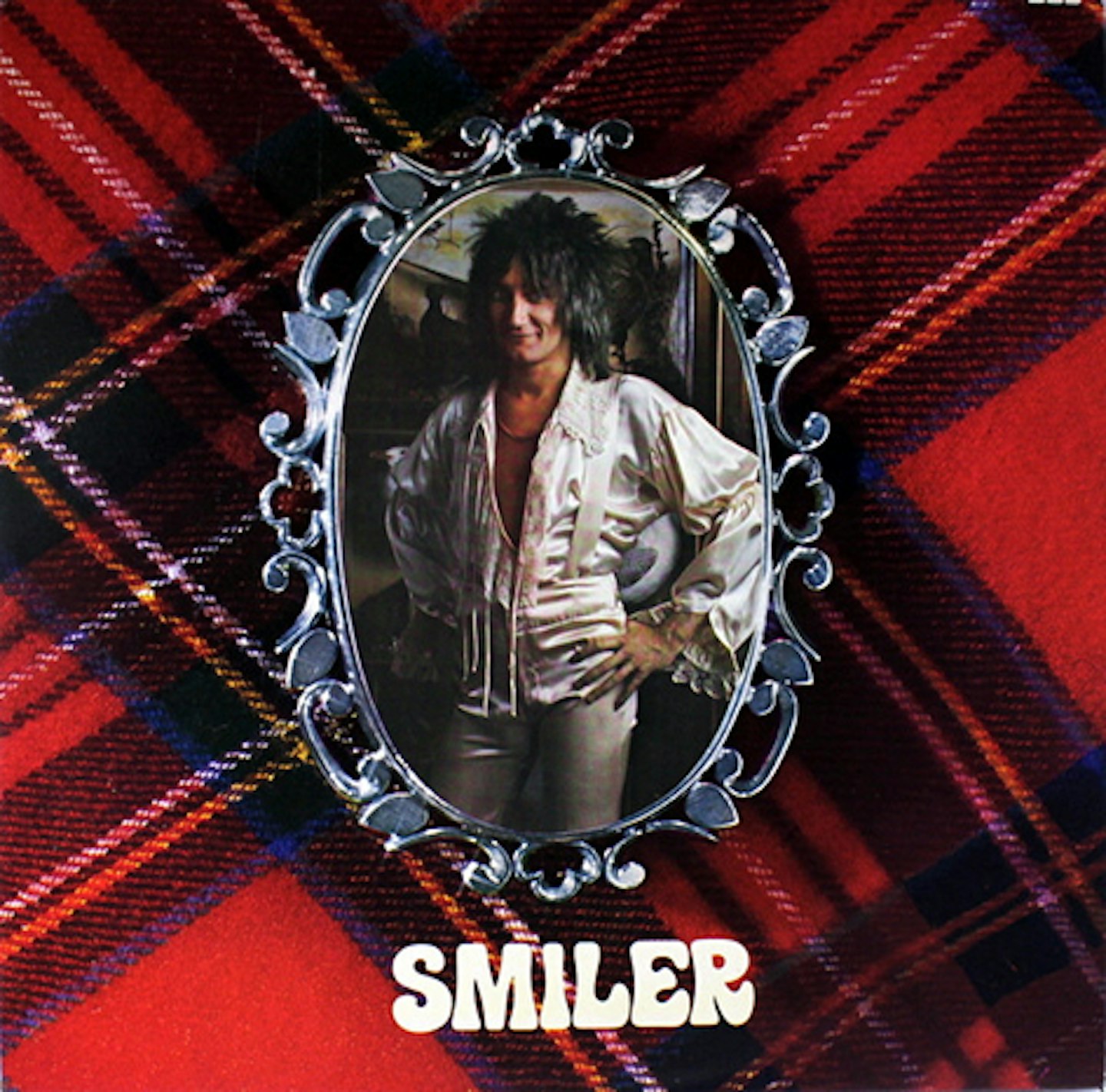
The last of Rod’s Faces-era solo album run, Smiler betters its reputation despite smacking of 1974’s endemic rock aristocracy decadence, as exemplified by the duet Let Me Be Your Car with its writer Elton John — “Sharon” to Rod’s “Phyllis” in their long-running, friendly, camp rivalry. Dixie Toot admits to its own forced jollity, and Rod’s production over-eggs Dylan’s Girl From The North Country and his idol Sam Cooke’s Bring It On Home To Me/You Send Me. But a version of Chuck Berry’s Sweet Little Rock'N'Roller rollicks just right, and Farewell touchingly concludes the wonderful composing partnership of Rod and guitarist Martin Quittenton.
15.
Pete Townshend and Ronnie Lane
Rough Mix
Eel Pie Recording. 1977
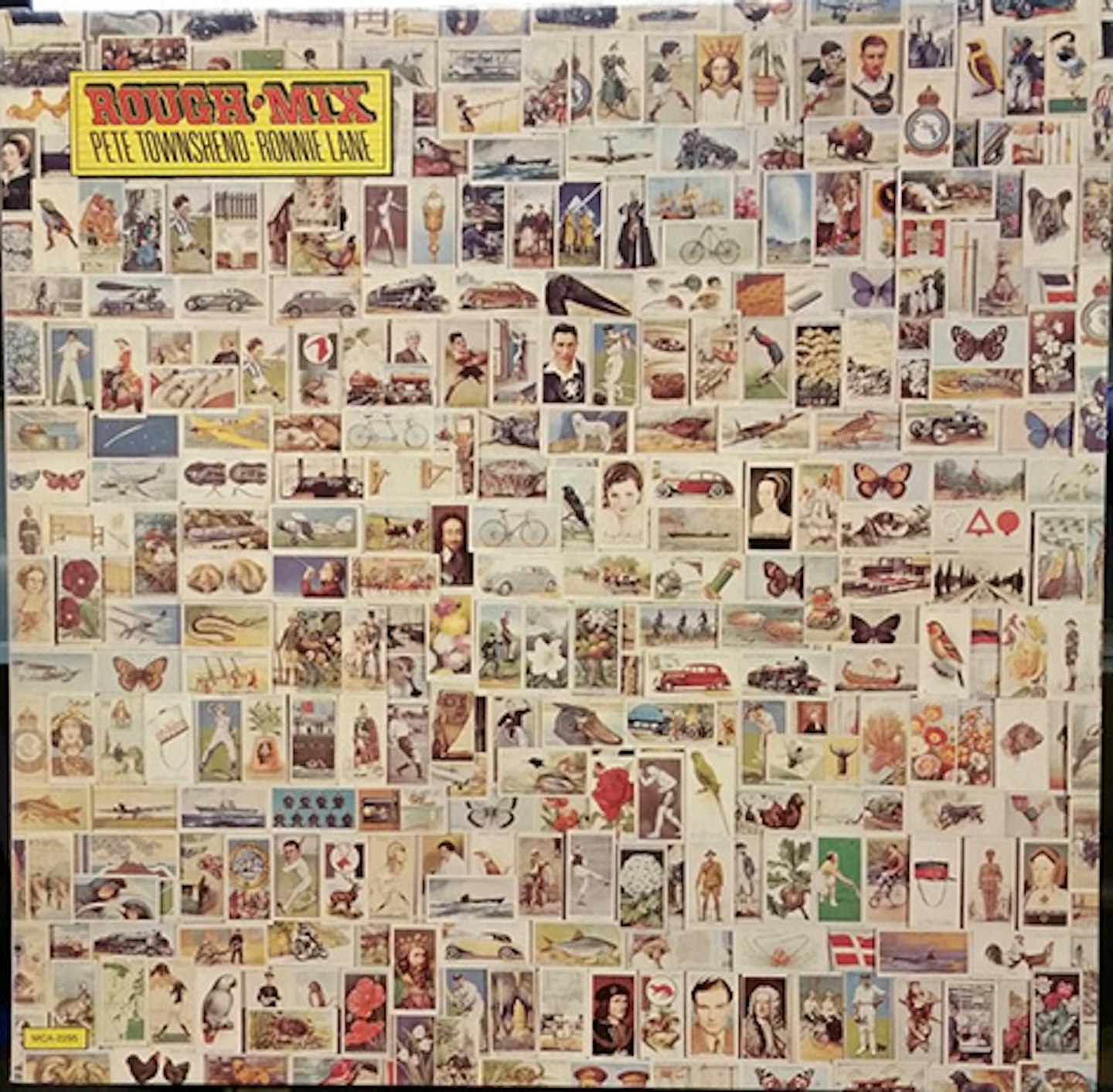
With The Who struggling with Keith Moon’s ill-health and Ronnie Lane bailing out of a Small Faces reunion, Pete Townshend opted to produce a Lane solo LP, which then evolved into a full-blown, 50/50 (ish) collaboration abetted by other artistically frustrated old friends – Eric Clapton, Charlie Watts, Ian Stewart. Cue a patchwork LP studded with rootsy jewels that might arguably have been better employed in a grander setting: Lane’s characteristically misty April Fool and Annie; Townshend’s gold-standard My Baby Gives It Away, Keep Me Turning and Heart To Hang On To. The sessions were disrupted by Lane’s aggressive mood swings – a result of his then undiagnosed MS that would sadly make this his penultimate studio outing.
14.
Faces
First Step
Warner Bros, 1970
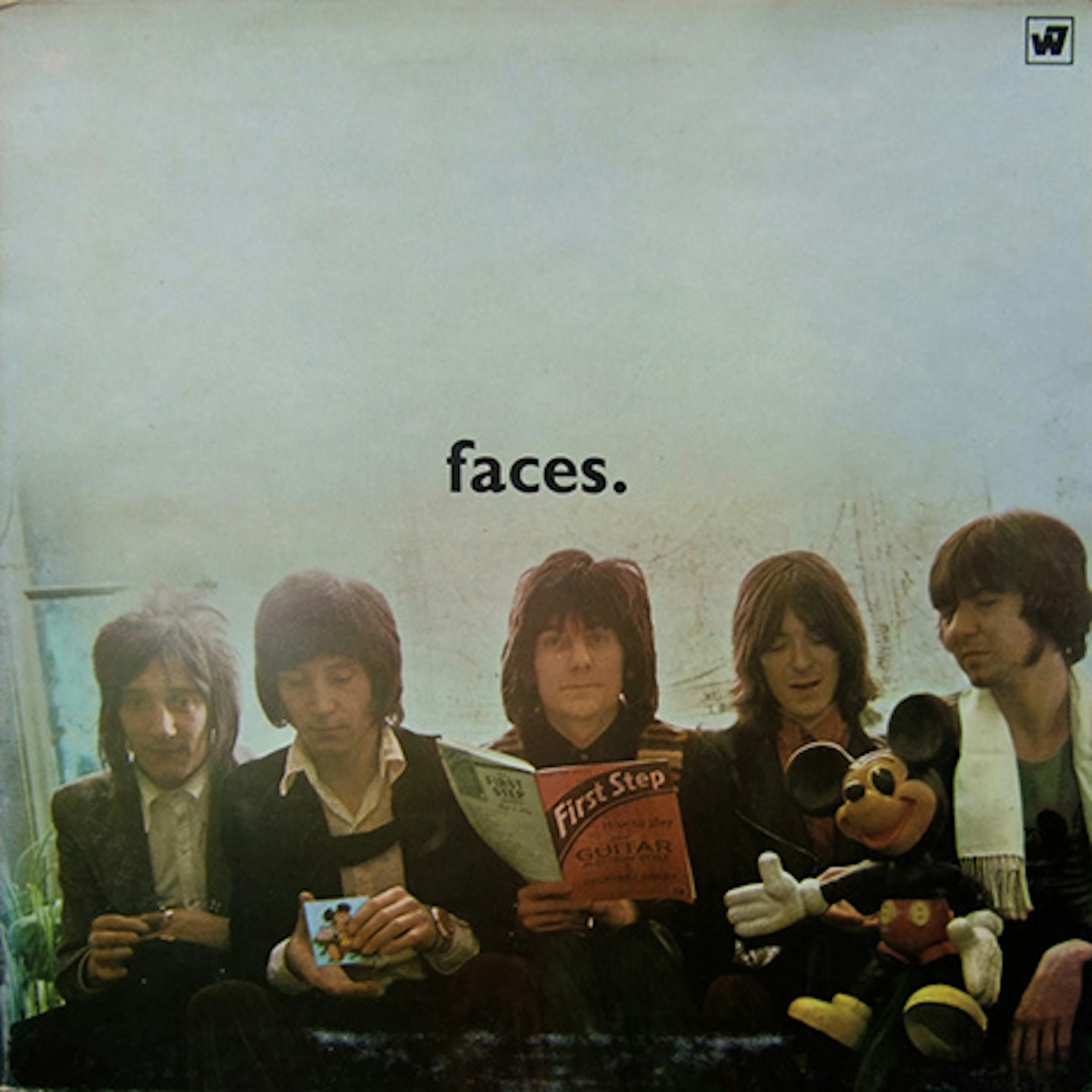
As its title freely admits, First Step is largely the sound of the newly formed Faces rummaging around for a sound that fits after the Steve Marriott walked out of the Small Faces, leaving them to recruit The Jeff Beck Group’s Ronnie Wood and - as part of the deal - Rod Stewart. Opener Wicked Messenger was a stab at the sort of Tolkien-ish heavy blues rock which was about to make Led Zeppelin mega-stars, but even the band themselves sound unconvinced. Far better is Wood’s slide guitar tour-de-force on Around The Plynth and Flying - an early prototype of Atlantic Crossing’s Sailing. It’s not until the final track, however, that they stumble upon their eureka moment: Three Button Hand Me Down fashioning a loose, five blokes down the pub bonhomie that suits them to a tee.
13.
Ron Wood
I’ve Got My Own Album To Do
Warner Bros, 1974
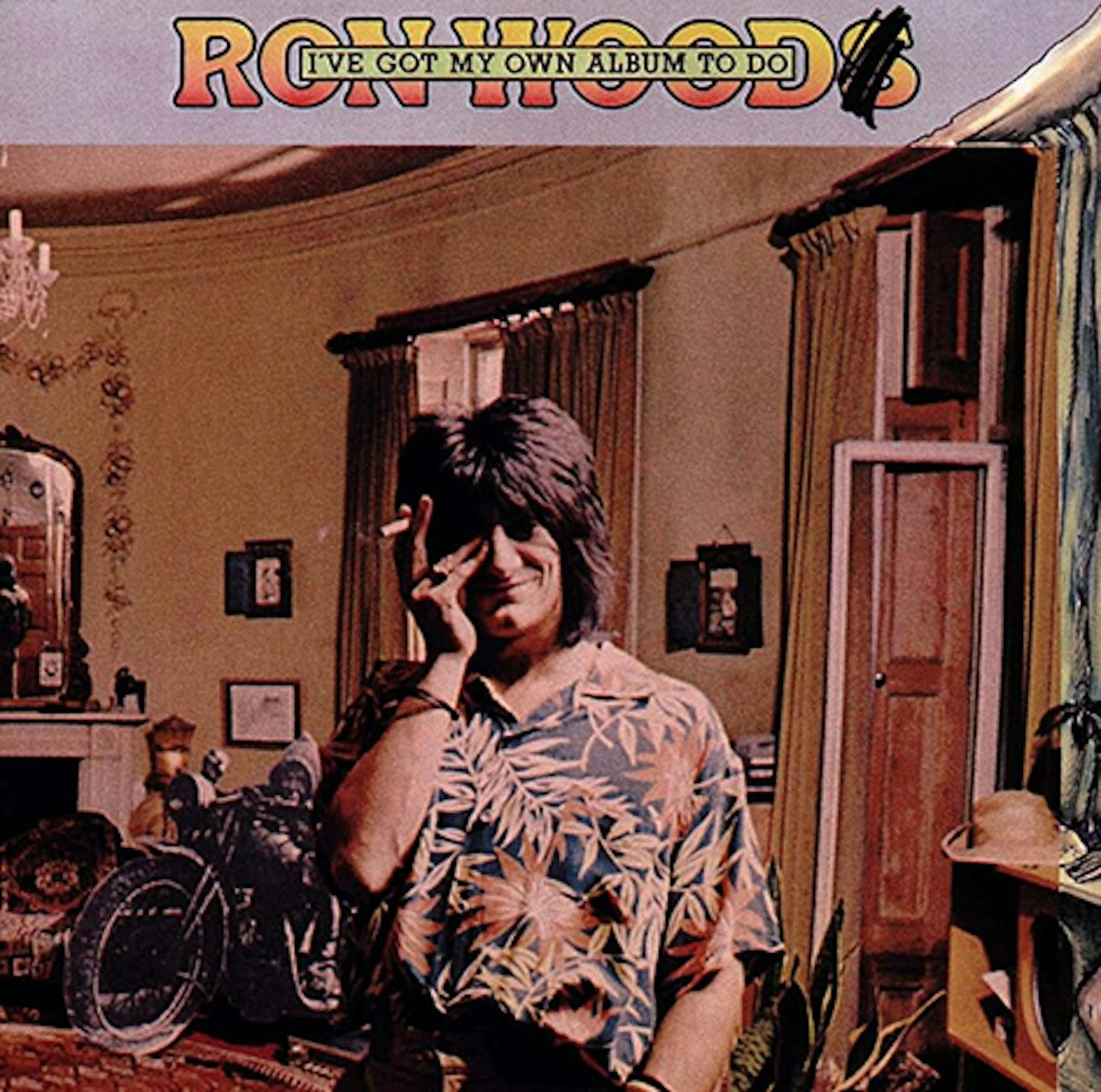
Possibly the best album title ever for side project, Ronnie Wood’s I’ve Got My Own Album To Do was recorded as the Faces began to drift apart following the departure of Ronnie Lane and before the guitarist officially accepted Mick Jagger’s offer to join The Rolling Stones. Jagger, Keith Richards (plus the guitarist he was about to replace, Mick Taylor) make an appearance here alongside his old Faces muckers Rod Stewart and Ian McLagan. Mystifies Me and Far East Man would have made fine Faces tunes and, had the pair sat on it for a year, tropical flavoured Jagger collaboration I Can Feel The Fire might have been one of the Stones’ best tracks of the era.
12.
Rod Stewart
Atlantic Crossing
Riva/Warner Bros, 1975
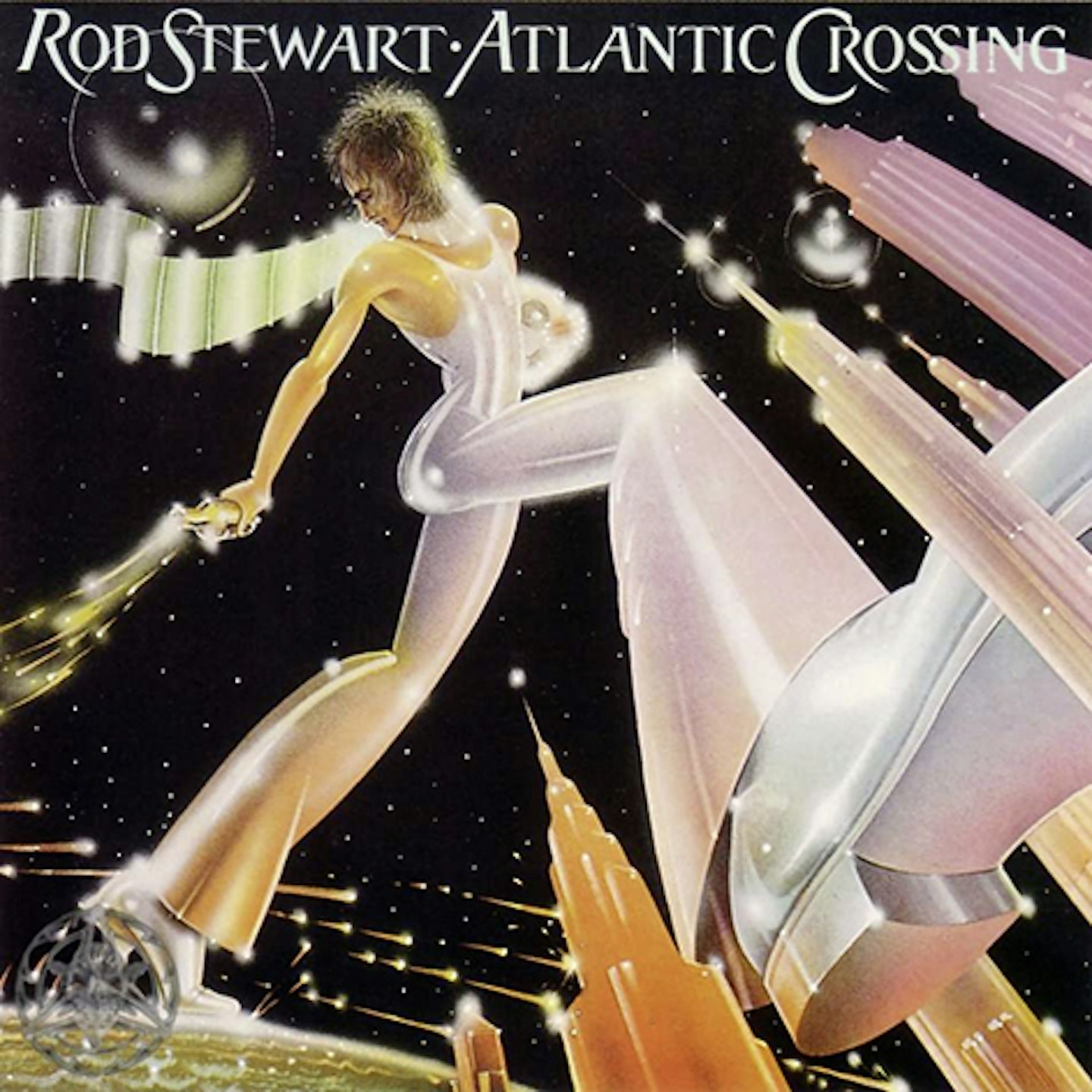
Rod Stewart’s sixth solo album was the first without any Faces aboard, and marked his transition from earthy rocker to LA playboy swank, replete with ridiculous pink jump suits, an actress girlfriend (Britt Ekland, who suggested the record’s ‘slow’ and ‘fast’ sides) and slick West Coast harmony clusters. But make no mistake, Stewart’s song selection and vocal performances are in excelsis here, with his own Three Time Loser and timeless re-workings of the Sutherland Brothers’ Sailing and Danny Whitten’s I Don’t Want To Talk About It amply atoning for some of the LP’s more glossy offerings. Exquisite production from Atlantic legend Tom Dowd adds to the sense of occasion.
11.
Rod Stewart
A Night On The Town
Riva/Warner Bros, 1976
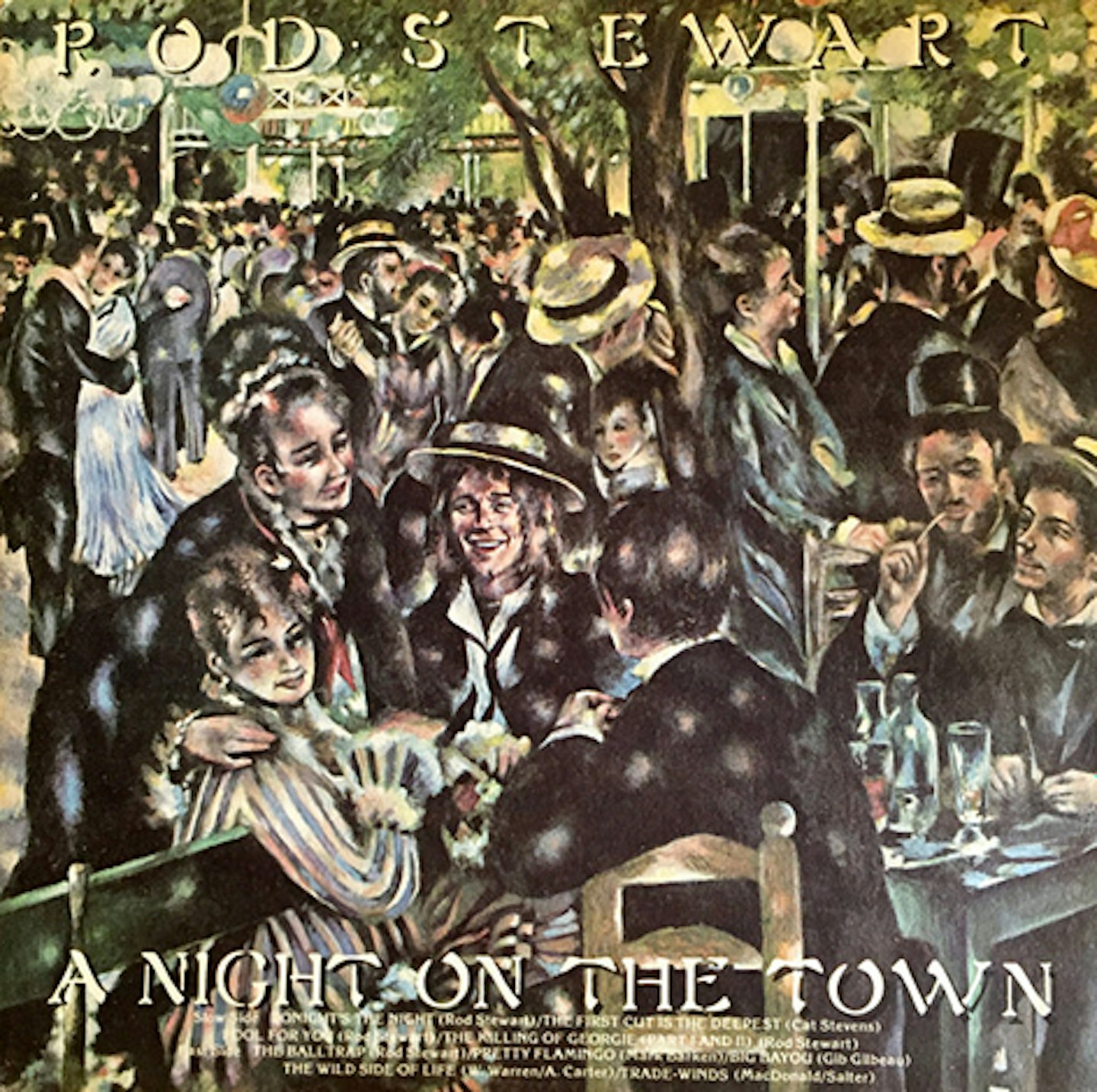
Where its predecessor Atlantic Crossing transitioned post-Faces by retaining a smidge of clipped and spare rocking raunch on its first side, before slowing down on side two, the second Tom Dowd production flips the order, subtly reprioritising Rod as a balladeer. The epic Killing Of Georgie narrates the manslaughter of a gay friend while discreetly quoting Lou Reed’s Walk On The Wild Side; it moved the dial against popular homophobia when gay sympathising was seen as a career gamble for a straight entertainer. The Balltrap, however, is far from woke, and the smash hit Tonight's The Night swings both sensitively and sleazily; very Rod.
10.
Ronnie Lane
Ronnie Lane’s Slim Chance
Island, 1974
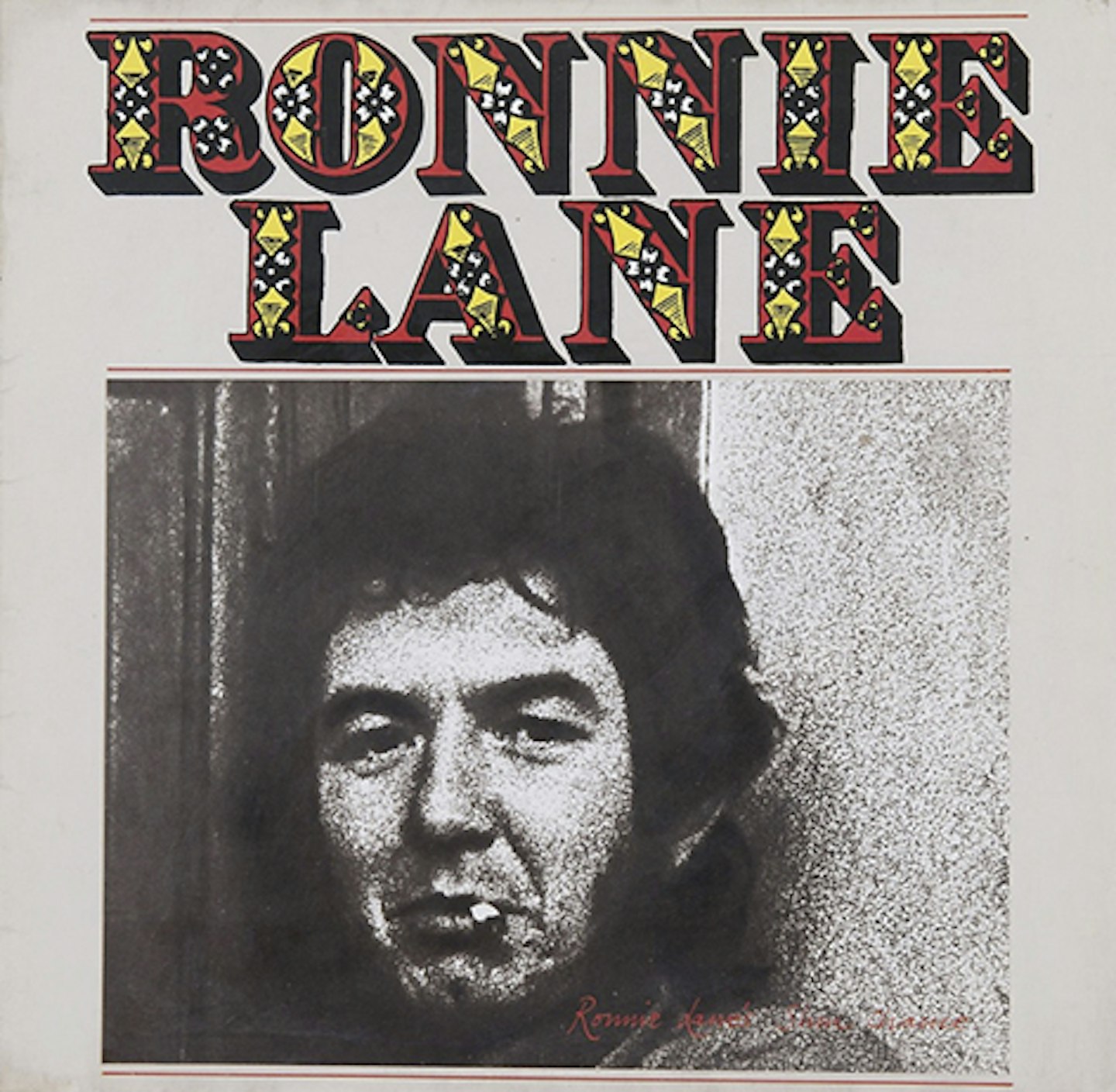
Since his Small Faces days, the quixotic Lane had been a frustrated frontman – as well as a singular songwriter – and on quitting The Faces in 1973 he immediately formed his own band, pursuing a gypsy-musician lifestyle in rural Wales with wife Kate, where family, music and booze inextricably intertwined. On this, his second LP, he hit his stride with a new line-up of Slim Chance featuring multi-instrumentalists Charlie Hart and Ruan O’Lochlainn. Sessions were conducted at Mick Jagger’s Stargroves mansion, and the result was a collection of atmospheric, open-tuned folk tunes like Anniversary, Give Me A Penny and Tin & Tambourine, celebrating the trials of quotidian country life.
8.
Faces
Long Player
Warner Bros, 1971
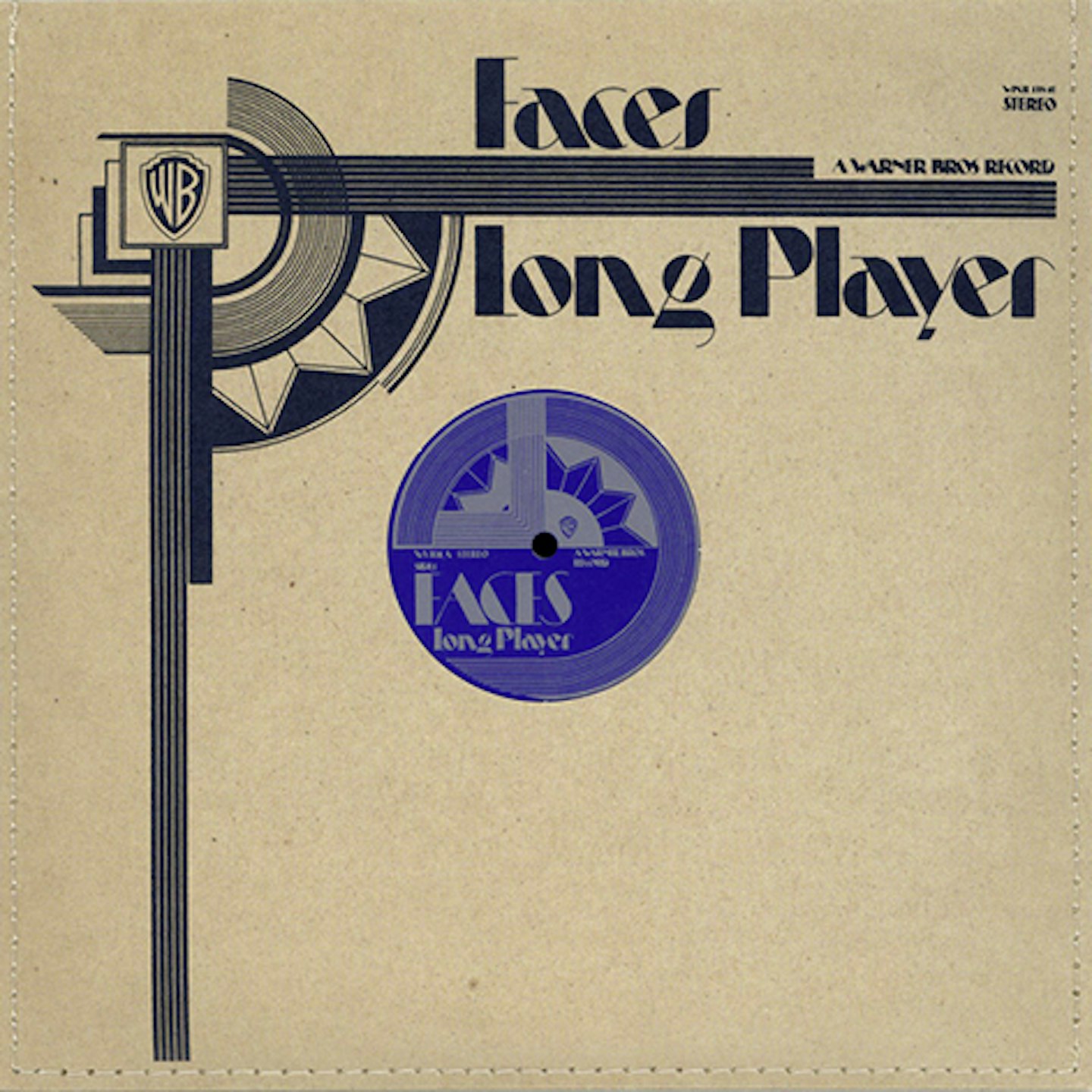
After the aptly named First Step had given a rough silhouette to the Faces’ raucous R&B, folk and soul amalgams, Long Player nailed the band’s classic sound. With various combinations of the group writing material, there was a range of moods on offer, from the rambunctious Lane-Wood-Stewart rocker Had Me A Real Good Time to the gentle, jug-band slide-guitar magic of Ronnie Lane’s Richmond. The Faces also showed how they could make other artists’ songs their own, their soulful cover of Paul McCartney’s then box-fresh Maybe I’m Amazed and rolling, honky-tonk revival of Big Bill Broonzy’s I Feel So Good (both recorded live at the Fillmore East) showcasing the band’s singular musical chemistry.
8.
Rod Stewart
An Old Raincoat Won’t Ever Let You Down
Mercury, 1969
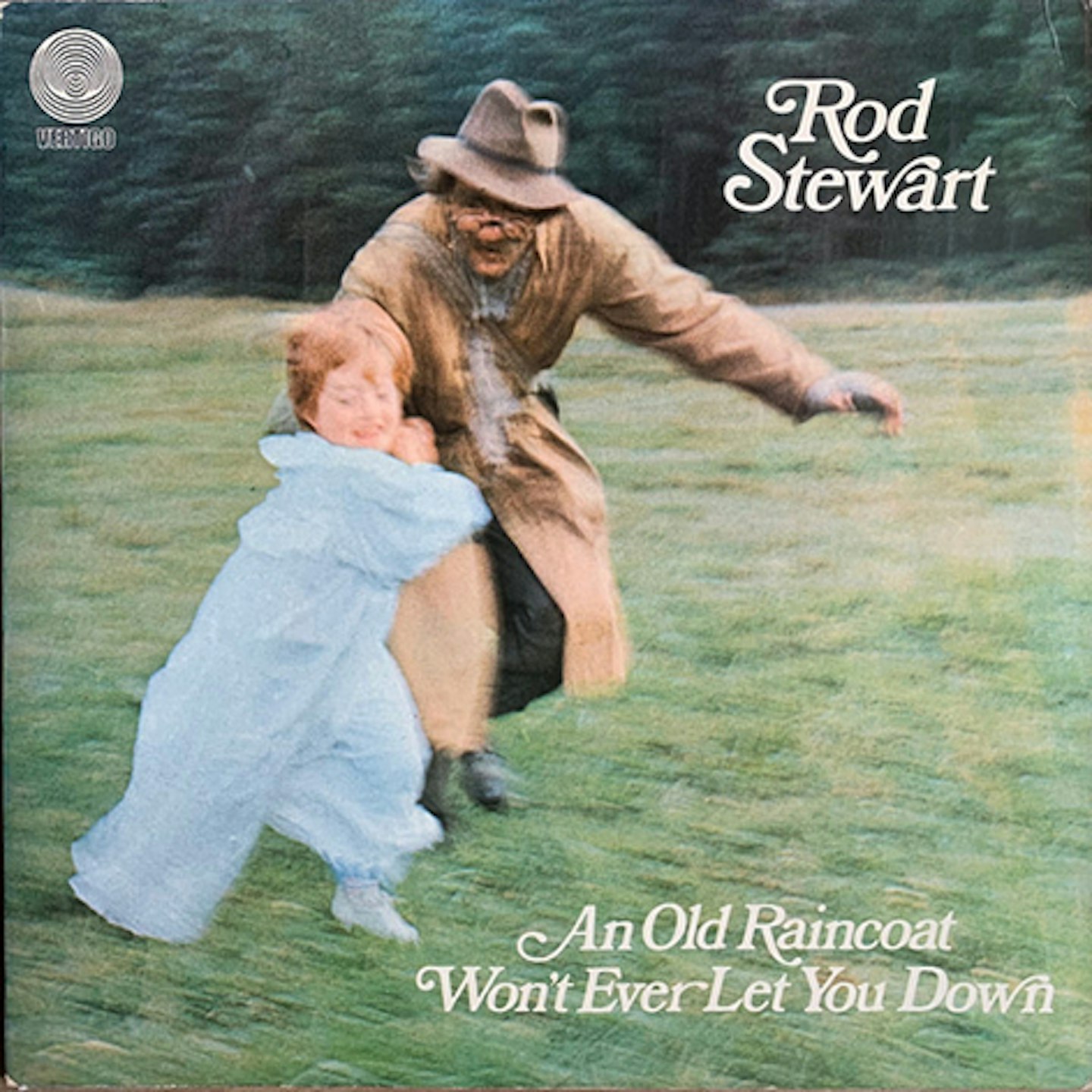
Turning 24, Rod had served his apprenticeship as folkie, white soul man and heavy blues-rocker with The Jeff Beck Group. To honour a solo album contract from the Mercury label eager to tap into the UK’s rock scene, Rod gathered a clutch of musicians kicking around London and, guided by the spirit of trust, spontaneity and fun, laid down eight tracks that would template his first five albums. Blending into a whole his mish-mash of musical influences, shrewd covers (Street Fighting Man, Handbags And Gladrags) and semi-confessional originals (Blind Prayer, the title track), this debut remains thrillingly alive.
7.
Ron Wood & Ronnie Lane
Mahoney’s Last Stand
Atlantic, 1976
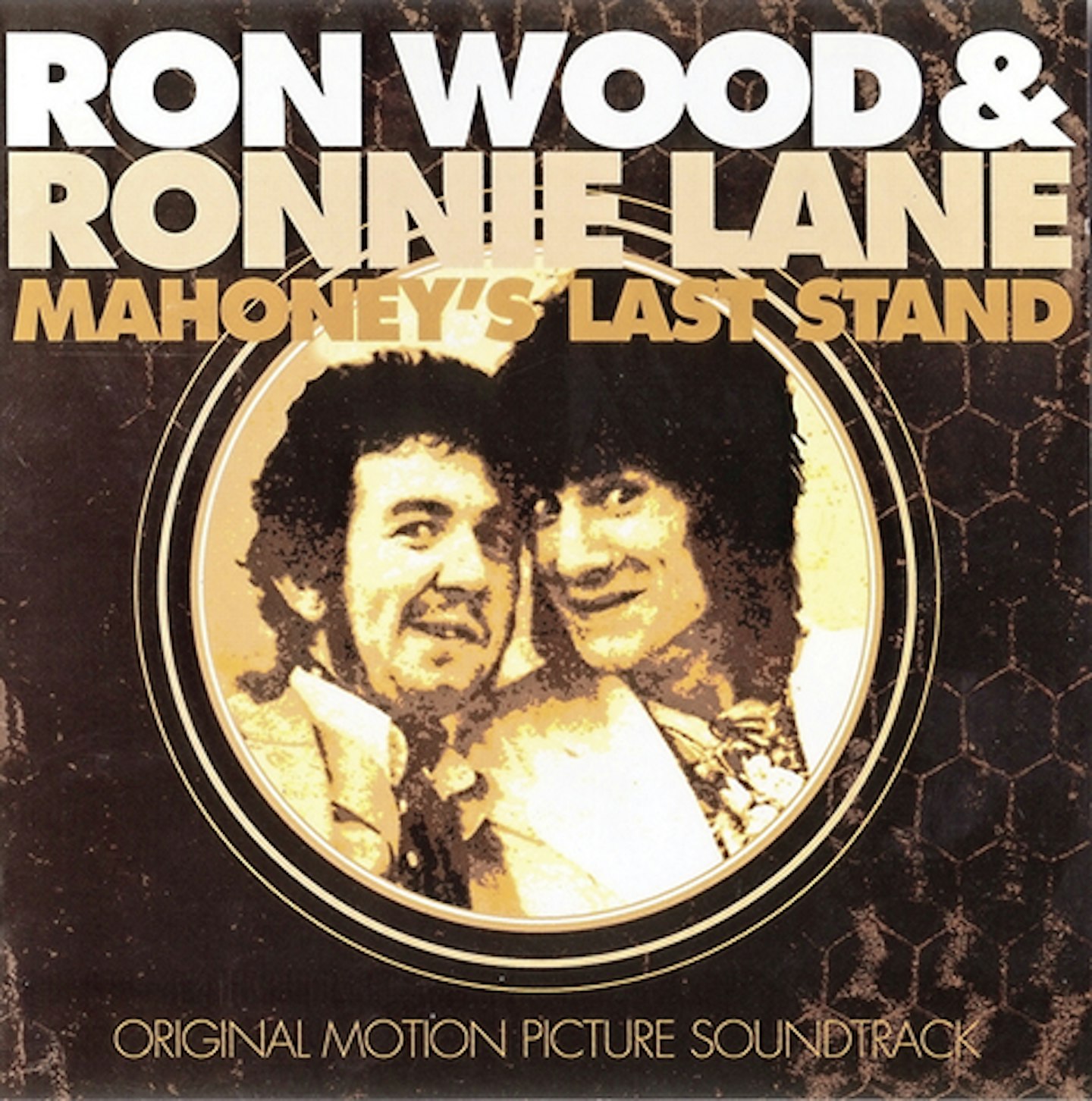
The overlooked gem in the Faces-and-related canon, this collection of mostly instrumental tracks – spanning bluegrass, gospel, Motown soul, folk, blues – were recorded for the soundtrack of Mahoney’s Estate (or Mahoney’ Last Stand in the UK), a 1972 film starring Alexis Kanner and Sam Waterston that was so obscure for years many thought it didn’t exist. Taped in May and September 1972 at Olympic Studios, it saw Wood and Lane employ a carousel of star mates including Pete Townshend, Gallagher & Lyle and honorary Stones Ian Stewart and Bobby Keys to help them out. The album was finally released after some further tweaking in September 1976, though by then Chicken Wired had already been retooled for Lane’s solo debut Anymore For Anymore.
6.
Rod Stewart
Gasoline Alley
Mercury, 1970
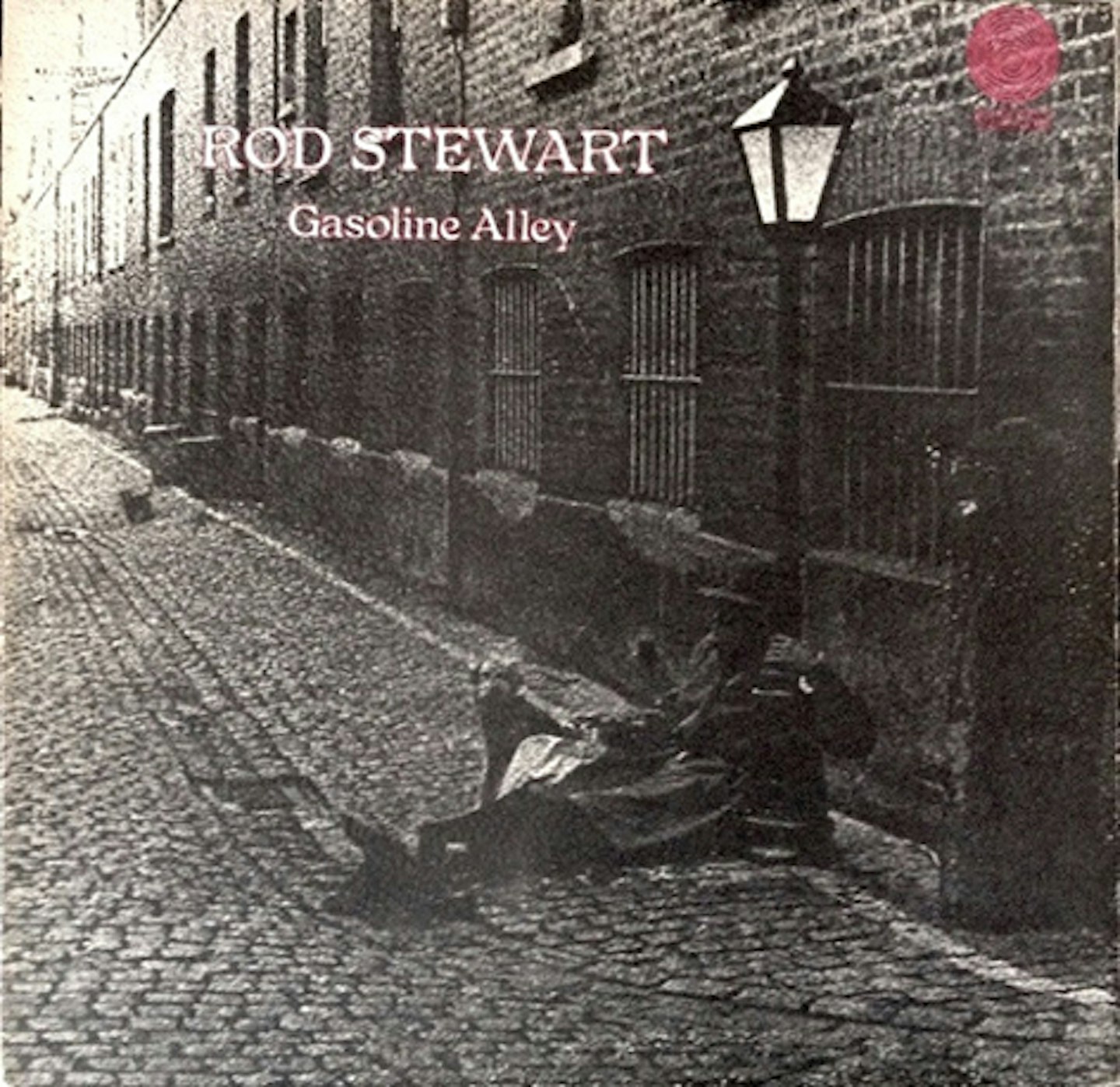
Rod’s second album was a side-project to his membership of the Faces, with overlapping personnel and functions in his career: The Faces toured, but not Rod solo; democrats and drinkers, the Faces sometimes struggled for vinyl focus, but tight-ship Rod captained masterpieces. With co-writer Ronnie Wood’s slide guitar keening away, the title track added to a songbook romanticising Rod’s scuffling days, its theme and feel of a piece with covers by heroes Dylan (Only A Hobo), Bobby Womack (a swinging It's All Over Now powered by drummer Mickey Waller), and, with Cut Across Shorty, Eddie Cochran, whose rattling attack was a font of inspiration.
5.
Faces
Ooh La La
Warner Bros, 1973
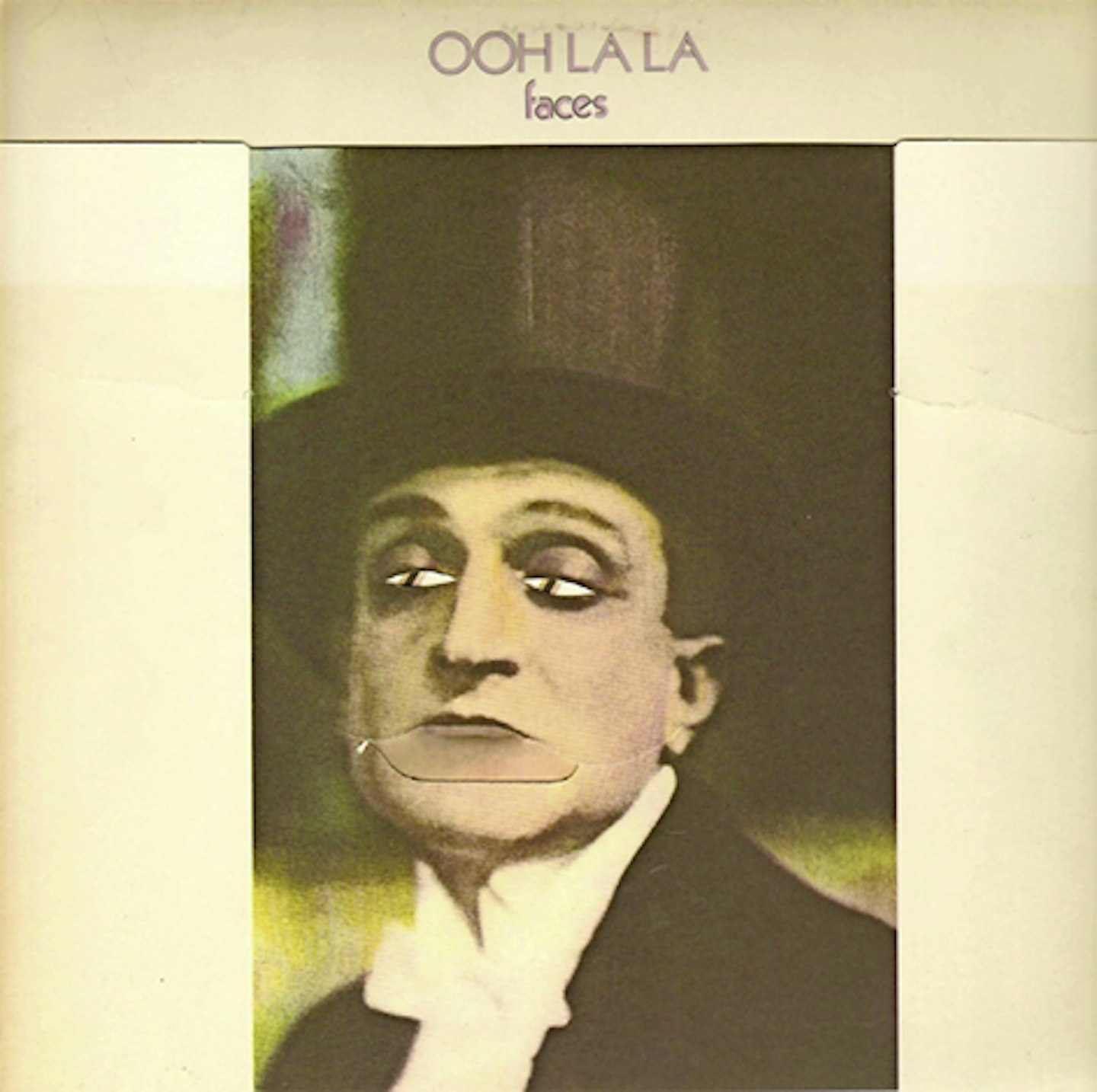
Stewart’s solo success meant that his initial input on Ooh La La was sketchy; as a result, it became known as “Ronnie Lane’s album”, as the bassist contributed the stand-out Flags And Banners, Glad And Sorry, Just Another Honky and the infectious, jaunty-but-rueful title track (sung by Ron Wood, a rarity). But Rod made his mark, too, helming the punchy Cindy Incidentally and Borstal Boys, with the ying and yang between Lane’s gentle, cosmic folk tunes and Stewart’s Saturday night yahoo R&B creating a compelling LP. They couldn’t go on like this, though, and Ooh La La became The Faces’ swansong.
4.
Ronnie Lane
One For The Road
Island, 1976
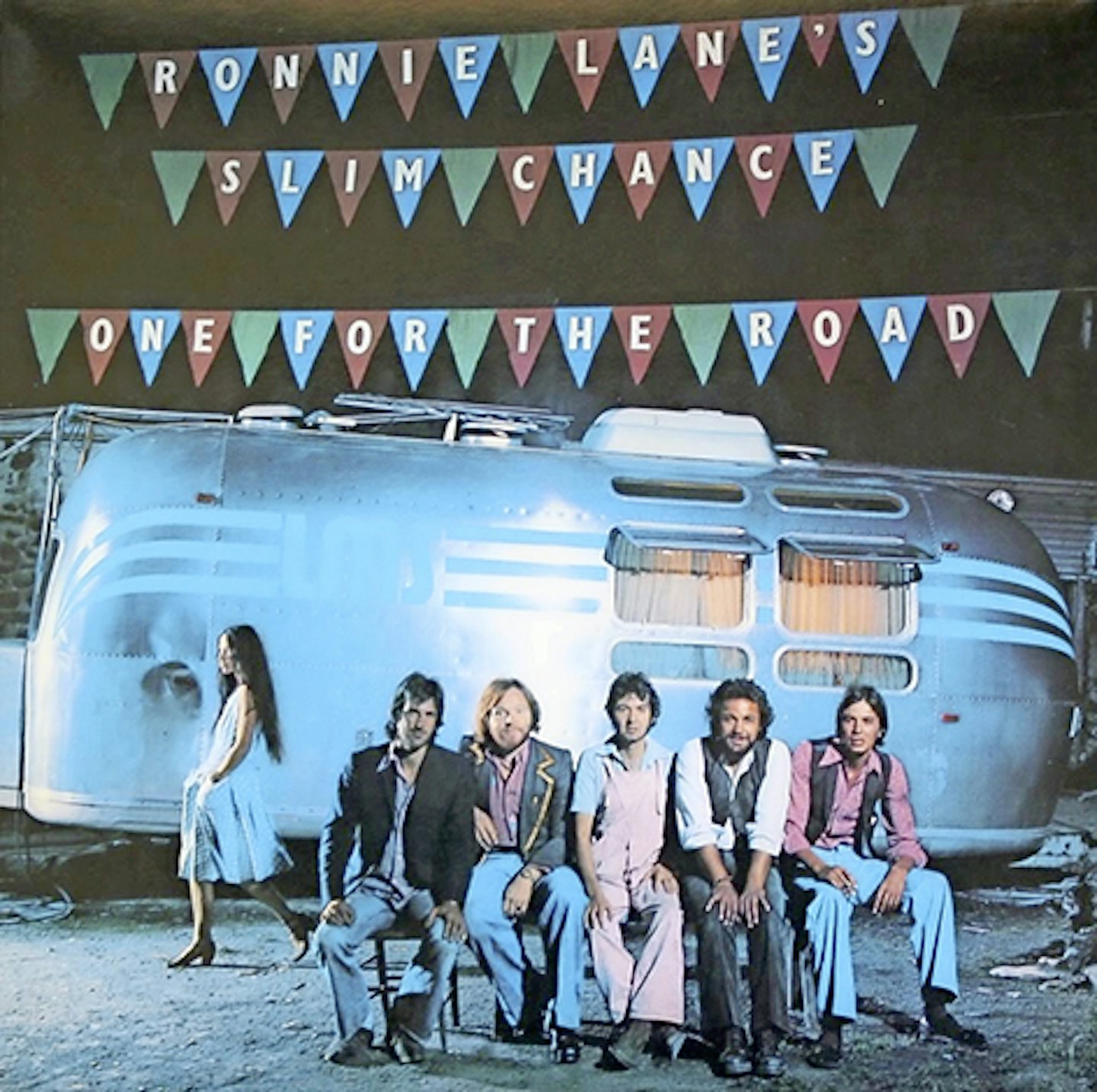
By the time Lane cut his third solo album, he’d seen his fairground-themed Passing Show tour fail and Anymore For Anymore and Slim Chance sell poorly. One For The Road – as with its predecessors partly recorded in situ at his farm on his RLMS mobile studio – seemed to have been built to rectify these commercial disappointments. The title track was a catchy arms-aloft rocker, 32nd Street magical Dylan folk-rock and Harvest Home a haunting, mournful accordion instrumental taped outdoors in the yard one evening. Lane even did a conventional tour of University and Polytechnic venues to promote it but, alas, his most consistent solo outing failed to sell, influencing his decision to briefly join 1976’s Small Faces reunion.
3.
Rod Stewart
Never A Dull Moment
Mercury, 1972
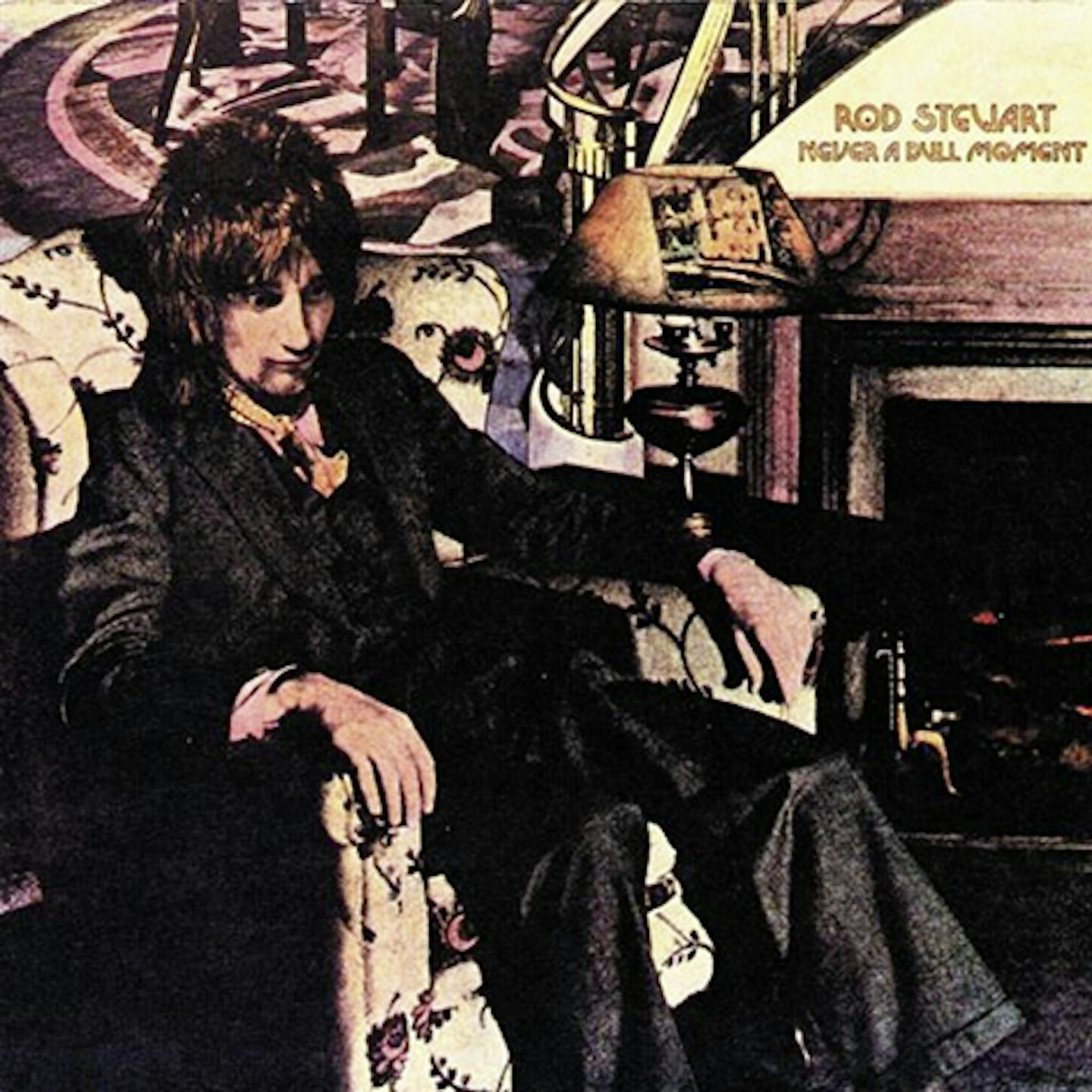
There really was never a dull moment in The Faces’ non-stop booze-athon, nor in the tense behind-the-scene tug-of-war over Stewart’s solo career. After the Number 1 breakthrough success of 1971’s Every Picture Tells A Story, this swift follow-up cannily repeated its formula with You Wear It Well depping for Maggie May (both were Rod co-writes with guitarist Martin Quittenton) and an emotive cover of I’d Rather Go Blind taking the former Reason To Believe role. Controversially, the stunning Stewart-Wood opener True Blue was originally conceived as Faces track, but was siphoned off to make this very good record even stronger. Too good to be seen as cynical.
2.
Rod Stewart
Every Picture Tells A Story
Mercury, 1971
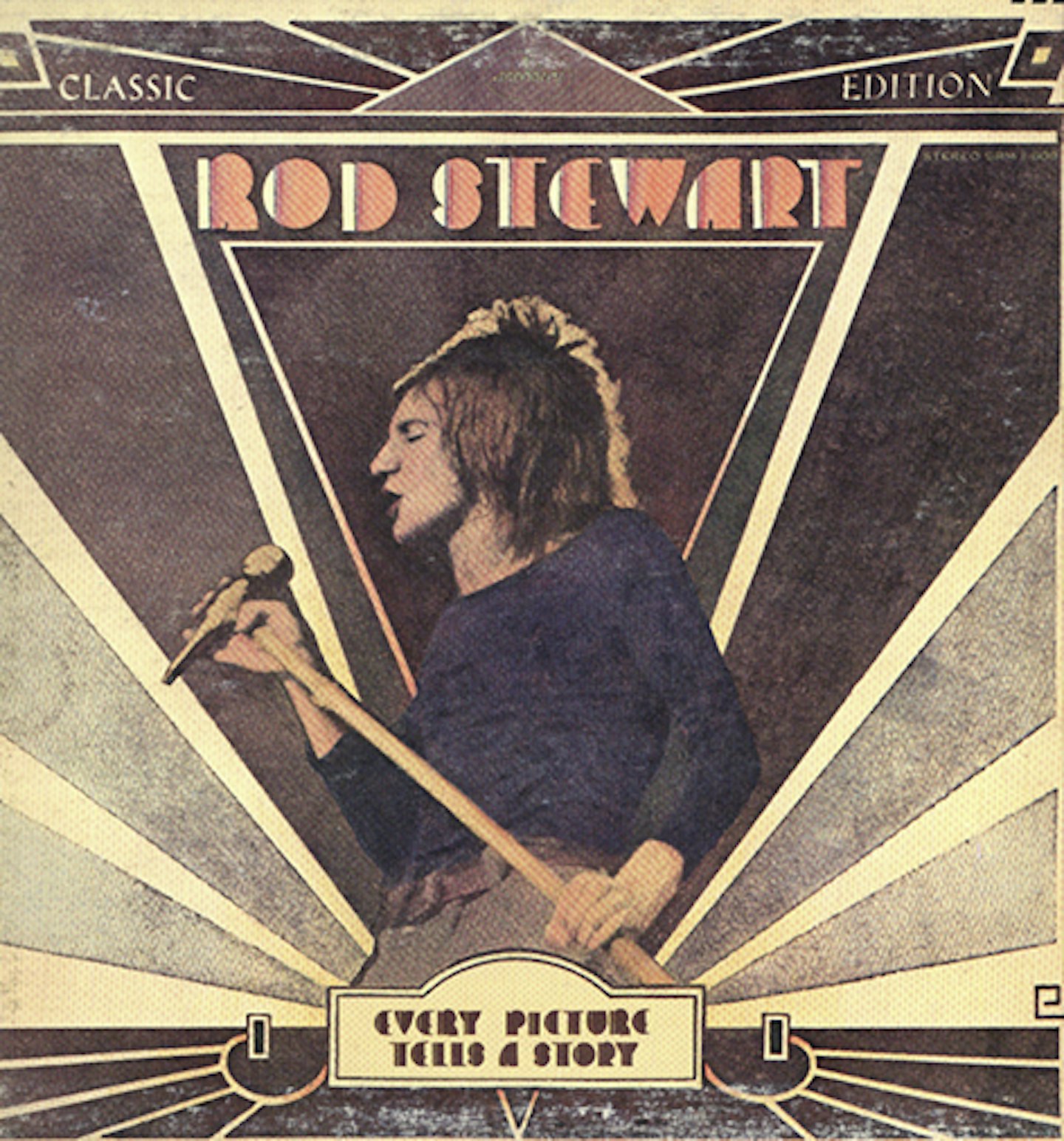
Stewart’s solo career was rarely a problem while his early albums, An Old Raincoat Will Never Let You Down and Gasoline Alley, weren’t selling. But his fortunes changed dramatically when Maggie May, written with the guitarist from his solo band, Martin Quittenton, became a hit in October 1971. This timeless folk-rock pearl was the gateway to an album peppered with jewels, including his gorgeous, from-the-soul recital of Tim Hardin’s Reason To Believe and Bob Dylan’s Tomorrow Is A Long Time. Rod’s reputation as a master re-interpreter of other’s works was set, but his own Mandolin Wind showed his gift for subtle melody (even though Lane claimed it was actually one of his).
1.
Faces
A Nod Is As Good As A Wink… To A Blind Horse
Warner Bros, 1971
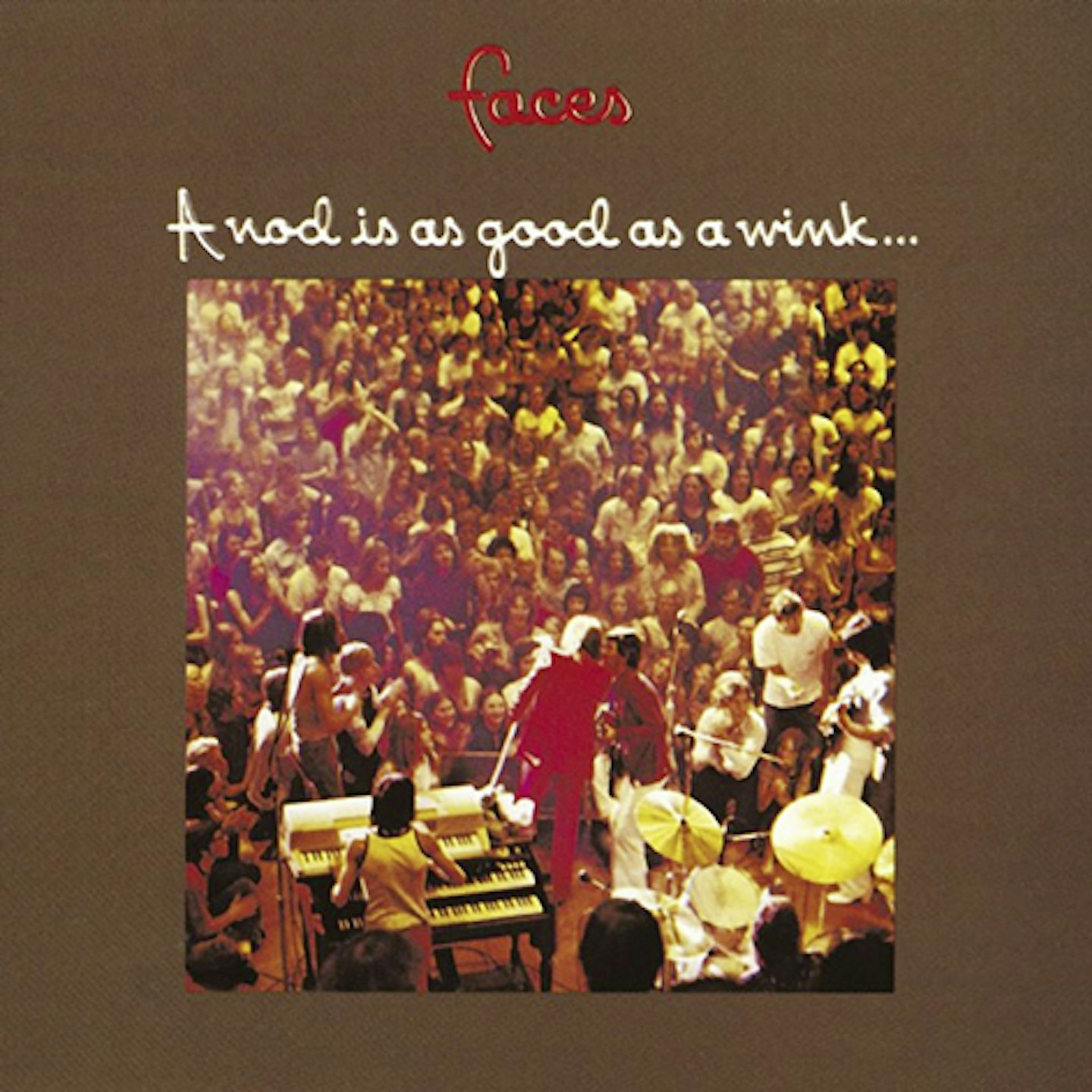
The Faces’ distinctive sound came from a collision of their members’ musical passions (blues, soul, rock), larger-than-life personalities and incorrigible one-upmanship, wherein Ron Wood’s probing, needling riffs would duel with McLagan’s rolling, virtuoso Hammond organ as Jones and Lane thumped out a tough groove and Stewart hollered lustily on top. It was sleazy, fun, intense and deeply human, and never more powerful on this, their third album, which, if it were only to feature the thrusting lasciviousness of Stay With Me and beautiful, gentle Debris would have been great, but with a supporting cast of classics like Miss Judy’s Farm, Too Bad and You’re So Rude became one of ’70s rock’s most loveably individualistic and influential creations. Imitated by many, but never bettered.
Picture: Michael Ochs Archives/Getty
